In the part of the world I live in, we cook using gas cylinders and the in-laws must be pampered. Here is my (not so fictional) story about proactiveness.
August 21st is a national holiday, our in-laws came in to visit, around 11 am we started cooking a gourmet lunch for the whole family in a happy atmosphere, pealing and cutting fresh vegetables and pouring them into what should turn into a delicious sauce where we will delightfully dip brown bread later. Yummy lunch ahead!!!
A few minutes into the preparation process, the gas cylinder hits bottom. No big deal, it happens twice a month and there is a small shop around the corner that delivers gas cylinders, “where is my mobile?”. As I heard the ring tone, a weird feeling progressively invaded me; my intuition was signaling something was wrong without knowing exactly what. Then… I understood… the shop was closed. “How come?”. Today is a national holiday, most shops are closed…
Ouch! At that moment, my mother in law enters the kitchen with a big smile, “Is everything OK?”… Um… Not sure what to answer…
Huston we got a problem!
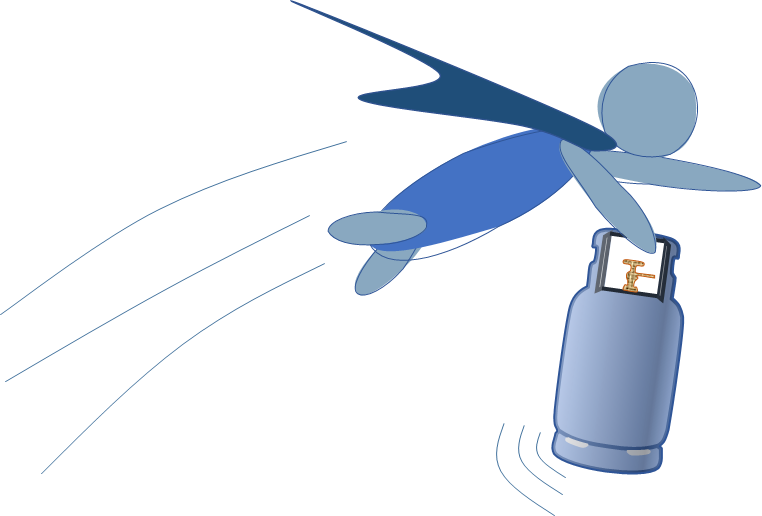
I had to act quick. As a superhero would do. I took the situation in hand, jumped in my car and flew around looking for the closest opened shop. After 15 minutes of wandering, I came across what I was looking for, parked my car and greeted the shop owner with a smile. “Do you have gas cylinders in stock?”, “Yep!” he answered, it looked like a happy ending… until he asked for the returnable gas cylinder. It’s then I realized that I left it at home trying to move quickly. I had to come back, grab it, drive again, swap it for a full one, pay and drive back.
In total, it took me around an hour to sort the problem out, some useless stress and I was reminded how understanding and nice my mother in law was ☺.
A happy ending and two pieces of learning:
- Be proactive!
- Carefully choose your in-laws ☺!

Is proactiveness a natural state?
No, it’s not. Our prefrontal cortex’s very role is planning and nevertheless, our natural state is not proactiveness. How come?
Our brain is composed of 2 main units the System1 (thinking brain) and System2 (default mode network). In the quest for control, the latter widely wins.
In a nutshell, our conscious brain is specialized in planning and that is a key differentiation factor vs. other species. Our subconscious is the primitive part responsible for survival. It did not evolve much since the cradle of humanity. In the primal jungle, with limited access to food, saving energy was critical to survival.
Using precious calories wisely supposes spending them on guaranteed outputs and immediately necessary things only. Proactiveness is somehow the opposite. Why would anyone carry a spare gas cylinder when there is no immediate need for it and no guarantee it will ever be needed? Small shops are supposed to be open 7/7d and until late-night.
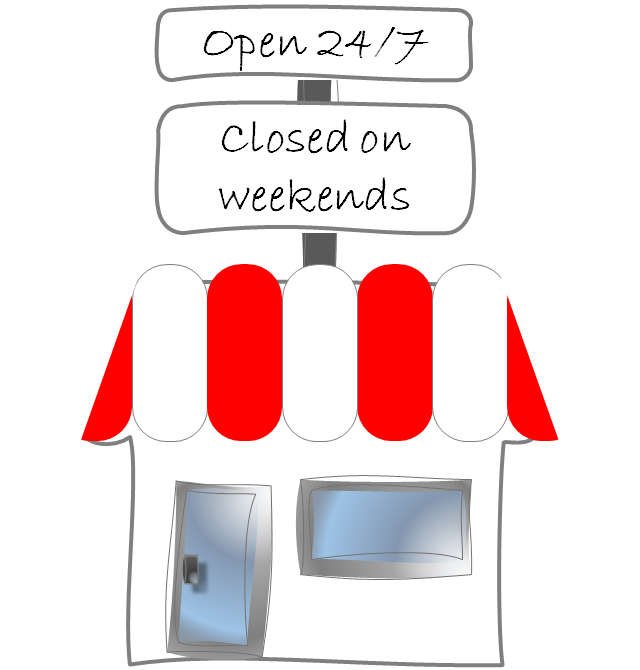
Solution
As with any problem, the solution is adaptation.
We need to adapt the language we speak to our subconscious brain.
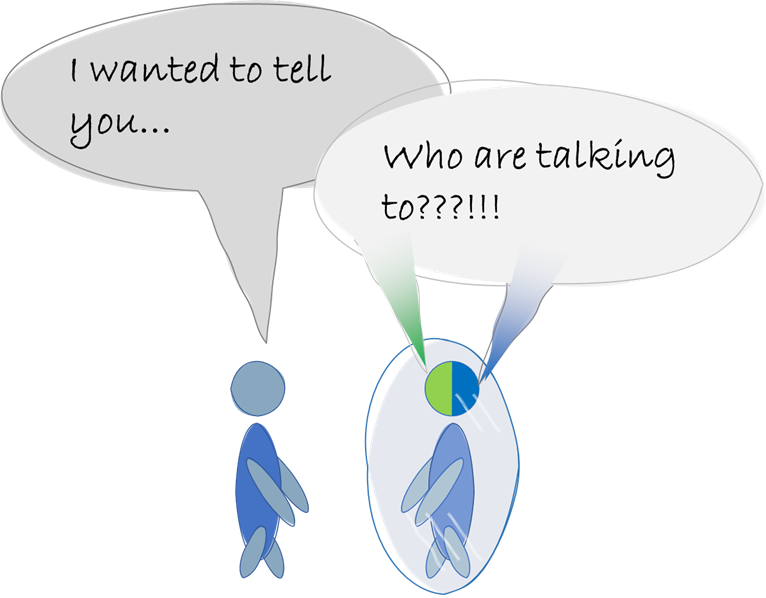
The more harmony we achieve between our two brains, the less “will power” we will need. Hence, let’s speak the “energy tongue”.
Reconsidering the cooking example, having a spare gas cylinder (proactiveness) would have required more calories short term but also helped decrease importantly the amount of energy required to deal with an empty cylinder later. In terms of energy saving, the proactivieness scenario is a clear winner despite initial extra effort.
So whether we are reactive or proactive, in both cases we leverage the natural circuits of our brain with a primary focus on energy saving. The only difference lies in the time frame considered. In the reactivity case, it is short term only, in the proactiveness case it is both short and long term. And there lies the trick.
As simple as that?
Well not really. We often hear experts talking about the fact that we live in a VUCA world. And yes, our world is getting progressively more complex. Technology is exponentially increasing interactions which ends-up in increased complexity. Forward planning is tougher every day. And if we want to apply the spare gas cylinder principle to all facets of our lives, we will quickly end up with an existence that looks like this…
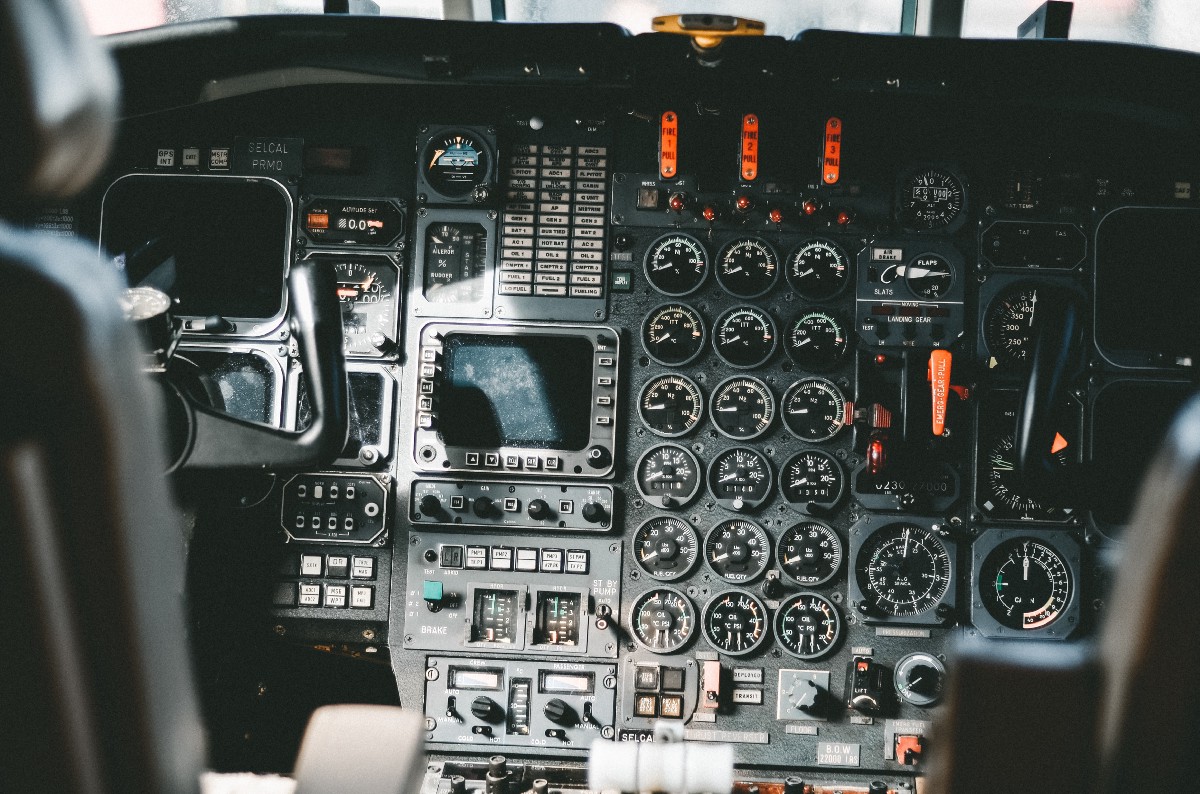
… In a plane cockpit, all instruments are duplicated. Just like pilots, getting a grasp would require years of training we cannot afford on all life’s matters. The risk is to slip progressively from proactiveness to inactivity!
If forward planning is not always productive, what’s the alternative?
Life is 10% what happens to you and 90% how you react to it. — Charles R. Swindoll
Click to tweet
Stephen Covey calls it the 90/10 principle referring to the same idea. For proactiveness to be constructive it needs to combine both forward planning and how we react to roadblocks.
It’s a subtle balance to seek. On the one hand, we need to trust our guts and on the other, we need to have an acute ability to observe the outputs and adapt behaviors accordingly.
Our gut feeling originates in our limbic brain, the one that Daniel Kahneman refers to as System1 in his book “Thinking Fast and Slow”. Because it records our past experiences, it is able, most of the time, to come up with an adapted response within a split second. Still, we cannot rely on it solely especially when faced with totally new situations. This is when System2 gets into play. It’s slower but more adaptive. Jacques Fradin, the founder of IME (Institut de Médecine Environnementale), explains the dimensions that differentiate the two operating modes:
- System1 or Default Mode Network or Auto mode is characterized by routine, rigidity, simplification, certainties, empiricism, social image.
- System2 or prefrontal mode: curiosity, adaptation, nuance, hindsight, logic, personal opinion.
The above characteristic show clearly that in terms of adaptation System2 wins. It is your best companion in terms of “error handling”, while System1 hits a limit and triggers stress.
Stephen Covey advises us training ourselves to go beyond the classic “Stimulus => Response” model, which characterizes System1, by installing a pause time allowing us to make a conscious choice. Remember, life is 10% what happens to you and 90% how you decide to respond.
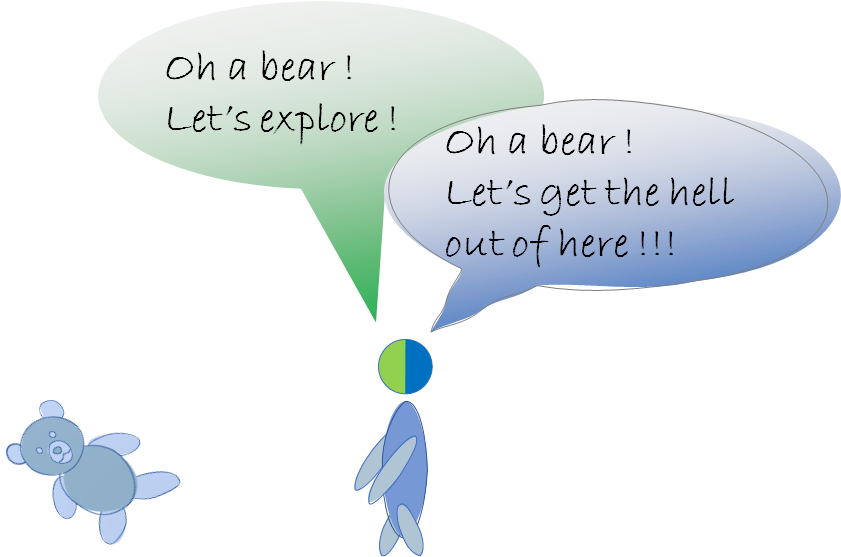
That’s not always an easy option because System2 does not kick in naturally. It uses precious stamina our subconscious would rather spare. Hence you need to consciously activate it, and that’s a whole different story ☺.
TO SUM UP
Proactiveness = forward planning + proper error handling
- The first happens by incorporating BOTH energy spent over the short and long term. This should be used on the most important matters to us.
- The second happens by leveraging System2 for error handling.
More reading on how to hijack your subconscious brain:
If interested in learning how to work with your nature and not against it, check out my book at WorkWithYourNature.com
